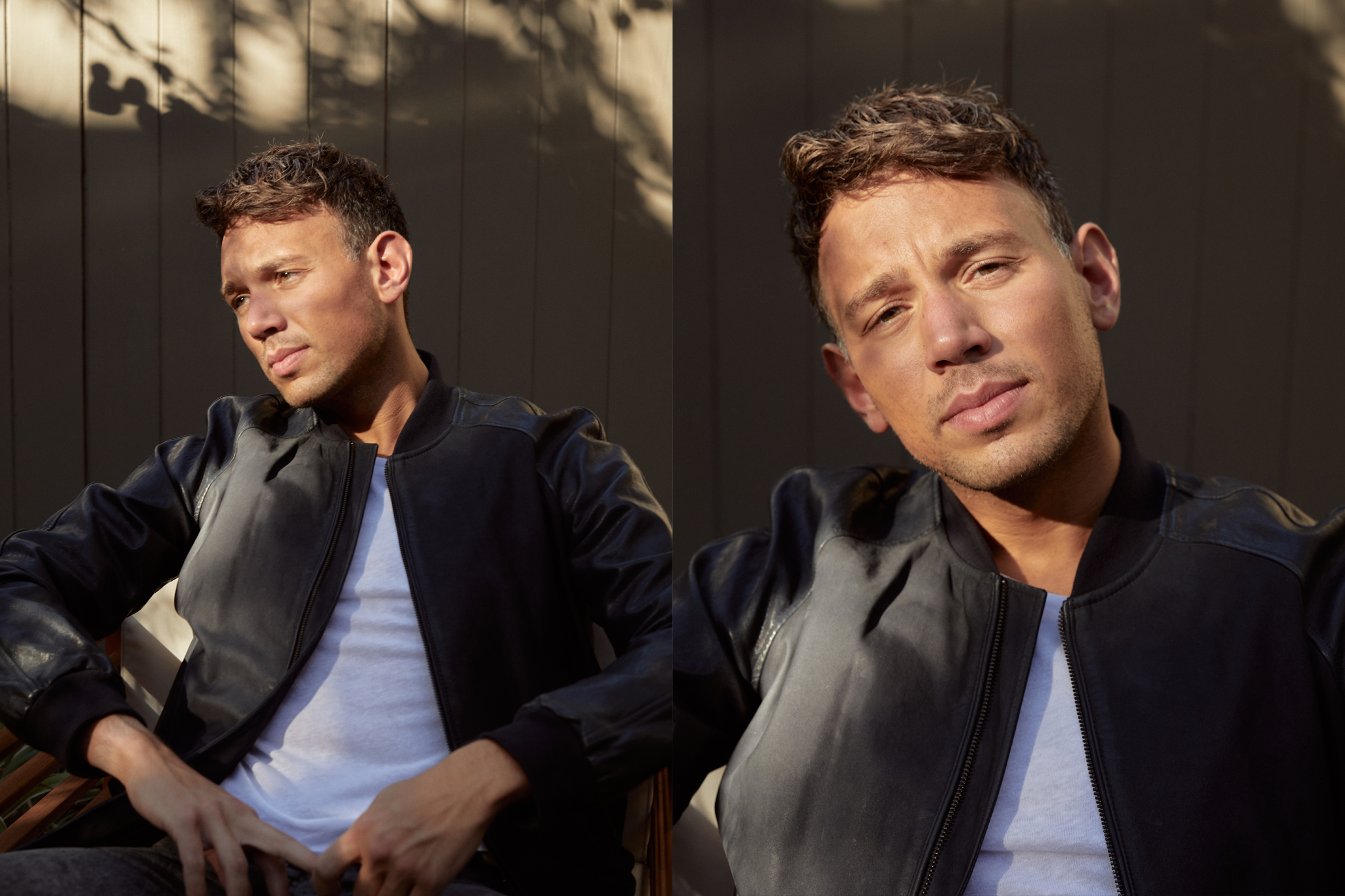In his debut novel, “Broken People,” Sam Lansky is driven by an endless fascination with the contradictions of Los Angeles.
Text by Maggie Lange
Images by Cody James
There’s an impeccable scene in Sam Lansky’s satirical novel about Los Angeles, Broken People, in which two men prepare to meet a shaman who has promised to transform their lives in three days. They are set-dressing their environment: They’ve acquired a gorgeous yurt (“ranch-hand glamour”) with Pendleton blankets (“masc seeking masc”), some medium-sized House of Intuition crystals, and Candle Delirium lighting. They debate which store will carry “the best selection of stylish buckets that will fit our aesthetic.” The buckets are, of course, to vomit into when the ayahuasca takes hold.
Watch: The Art of Tattoos in LA and Hawaii
There’s no better place than Los Angeles, Lansky’s novel posits, for the most fashionable trappings of healing. Broken People shows a city caught in the “crosshairs of materialism and mysticism,” as Lansky describes over the phone from his West Hollywood home on a sunny day in early January.
In the book, the men beautifying their spiritual yurt are scolded by the shaman for “trying to produce the experience.”
They’re taking an almost competitive approach to healing. The very impulse to make everything look gorgeous and seem vibe-y, the very impulse to heal everything away, is exactly what Broken People wants to address. The book holds a mirror to this wellness-chic impulse, cracking the mirror in the process.
I have become, for better or worse, a very L.A. person.
– Sam Lansky


When Lansky, a magazine editor and journalist, was in his early 20s, he wrote a memoir about his teen years in New York. Published in 2016, The Gilded Razor details the trajectory and fallout of Lansky’s drug addiction. A few years later, Lansky published Broken People, his first novel, which, to an extent, picks up where the memoir left off.
In the novel, a magazine editor named Sam (who wrote a memoir about his years of addiction) is at the center of the story.
This personal tether is potent throughout Broken People; while it is ultimately a juicy satire full of fun, absurd characters, the book also has a strong, pumping, very real heart at the center of it. Lansky jabs at L.A.’s hypocrisies and contradictions, but he never forgets that there’s an earnest impulse in this relentless self-improvement. In its cracked mirror, it also reflects the author’s fascination with and love for the city.
“I have become, for better or worse, a very L.A. person,” Lansky says, “and this is a very L.A. book.” When I ask Lansky what he means by “very L.A.,” he answers snappily, “I have an Erewhon sweatshirt.”
At first, he says, he was entirely bemused by the famous grocery store, with its “$22 yogurts” and clientele that’s “either rich or famous or both.” Quickly, bewilderment shifted to genuine affection. Now, Erewhon is his favorite place, he says, and he’s completely lost track of when ironic participation turned to earnest devotion.
“A place where anyone could be their best self for a price is so compelling to me,” he says with a laugh. For example, he was amused to find himself suddenly interested in Los Angeles’ footwear culture. “In New York, I did not have a single pair of bougie sneakers,” he says. “I’m not a sneakerhead wandering Fairfax, but I do have a number of sneakers that cost more than anything else I’m wearing. I still feel cool with some very chunky, very ugly Balenciagas.”
In a place famously obsessed with outer beauty, he loves when the worship of beauty is whole-heartedly rejected in a flash of independence.
“I have so much respect for fashion-y ugliness,” he says. “You see it architecturally too, with this horrible, squat Brutalist architecture.”

While L.A. denizens may instinctually make everything into a gorgeous production, may stylize a yurt for their spiritual improvement, Lansky also sees some radical self-acceptance in their moments of free, fun, fashionable ugliness.
This perspective positions Lansky to address the cultural moment perfectly. Perhaps the most moving moments in Broken People are when Sam Lansky the writer shows you exactly how absurd something can be, but Sam the character falls for it anyway, because, in Los Angeles, it’s also totally irresistible.
Broken People by Sam Lansky out now.
See more of Cody James’s photography at codyjamesphoto.com.



